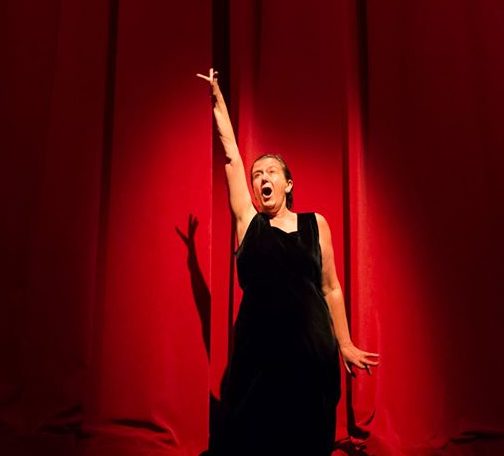In this guest contribution, singer and sound artist Helen Pridmore explores the important role of imagination in exploring the creative and embodied process of singing and sound exploration.
****
What is the relationship between improvisation and imagination? Actually, let’s start with another question: what is the relationship between singing and imagination? From there, we can return to my first query. Then, we can ponder a third combination: the relationship between singing and improvisation.
Any form or style of singing requires imagination, on several levels. First of all, there is the simple technical imagination required to visualize the vocal apparatus: the vocal folds, the vibration, the management of the breath, and so on. All unseen, therefore, requiring us to use learned imagery and physiological knowledge, to imagine the process. Then, there is the artistic imagination required to interpret a song, how the music and text are interwoven. And, of course, one must imagine the performance, its style and practice, and its launching into the world/theatre/group of listeners.
Improvisation, in its myriad forms, also requires imagination. Listening and imagining are the two key elements of any successful improvisation. In the case of free, experimental improv, which is what I practice, I strive to listen to what is going on around me, if improvising with a group; and/or I aim to imagine lines, sounds, contours that will fit with either the group or with the fuller imagined shape that I am creating by myself.
For example, I recently took part in a developmental workshop to create a new theatre piece for voice, piano and electronic soundscape.[1] In order to get our ideas flowing, we improvised, on top of each other’s soundings, on top of existing music, on top of ideas or texts. One of us started something and the others joined, adding chords, effects, variations, ornaments – layering the sounds. We imagined context and we listened. I imagined vocal sounds that would fit with the affect we were trying to achieve. I didn’t stop at traditional vocal technique: I tried multiphonics, overtones, whispers, grunts – whatever and wherever my imagination and my listening led me.
So, imagination and improvisation — and singing. Many classically trained musicians are afraid of improvisation. Our training puts us in boxes, ensuring that we perfect what someone else wrote. Down to the last articulation or dynamic marking, we must re-create the music exactly as it was initially notated.
This fear may be especially true for singers. Not only are we trained to follow a score precisely, but we must also create the perfect tone, the bel canto quality that we hear in our most famous singers of the last 200 years or so. We lose competitions, auditions, opportunities when we cannot produce that particular, formatted, expected sound.
Are we telling stories when we sing from the page? Certainly. But consider that it is someone else’s story. What if you decide to create your own story, using your own voice, your own imagination, your own space?
Learning to improvise can offer vast realms of freedom in creativity, story-telling and imagination. There are multiple ways to improvise, of course, ranging from jazz styles, which develop and play with existing tunes, to free improvisation, where performers create new worlds as they play, listening and exchanging and collaborating. And imagining. Imagining a story; imagining an emotion; a colour; a sound.
Can we imagine a new vocal sound? Can we explore beyond that standard bel canto lineage? Can we imagine other forms of vocal beauty? I’d like to think that we can, and that we are.
[1] I will keep you posted on this new work! Scheduled to premiere in 2022, it’s a work based on ideas of abolition and radicalization, both historically and in current day practice. We start with a look at the Grimké sisters of South Carolina, who worked tirelessly for slavery abolition and women’s rights in the 1800s.
Short Bio: Helen Pridmore is a singer and sound artist, with a lively practice in contemporary scored music, experimental music and improvisation. Based in western Canada, she performs widely, including presentations of her own compositions. www.helenpridmore.ca
Discover a sample of Helen’s work below (Sounding Bodies, an improv collaboration with Ontario-based sound artist Ellen Moffat, 2019).

